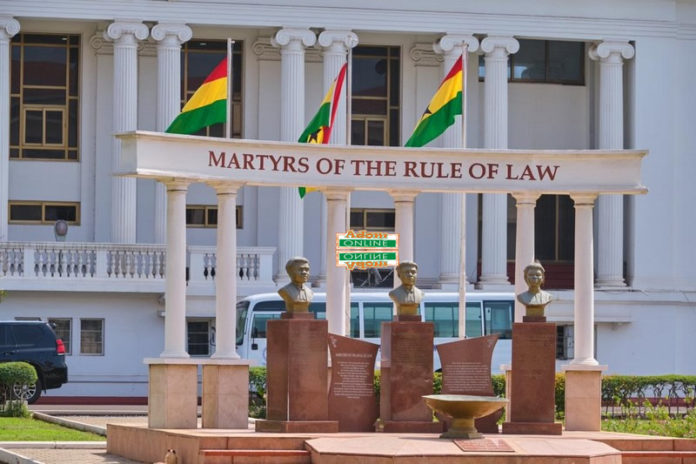The Supreme Court will on June 23, 2020, deliver its judgement in the case in which the Ghana Independent Broadcasters Association (GIBA) has sued the National Communications Authority (NCA) over the decision to introduce Conditional Access for Free-to-Air TV broadcast.
In the suit filed in January 2020, GIBA argues that the Conditional Access System introduced as a mandatory requirement by the NCA constitutes an unnecessary restraint on the establishment and operation of private media.
GIBA is also praying the court for a declaration that the blockage of media content of Free-To-Air broadcasters through the use of the Conditional Access System is unconstitutional as same constitutes an unreasonable and unnecessary abridgement of the freedom of the media contained in Article 21(a) and 162 (1) of the 1992 Constitution.
The Conditional Access System planned to be introduced by the NCA will see media content of Free-To-Air broadcasters blocked by the government unless certain criteria have been met before access to content is granted to the public.
Background
The Ministry of Communications through the NCA has since 2017 been attempting to implement changes to television broadcast sector with the introduction of systems of control which GIBA frowned upon because of access concerns.
GIBA has over the last three years argued that the policy will take away the public’s right to freely access free television programming.
After previous misgivings, GIBA welcomed a revised standard on the Digital Terrestrial Television (DTT) and Direct-To-Home (DTH) Receivers by the Ghana Standards Authority (GSA) after the Conditional Access System was made non-mandatory for Free-To-Air TV Receivers on December 18, 2019.
But on January 8 2020, GIBA came out with a statement saying the NCA published a document on its website on December 30 that was at odds with the GSA standards agreed upon indicating the Ghana Minimum Technical Specifications for DTT and DTH receivers for Free-to-Air Television Reception.
It described the purportedly new document as alarming.

